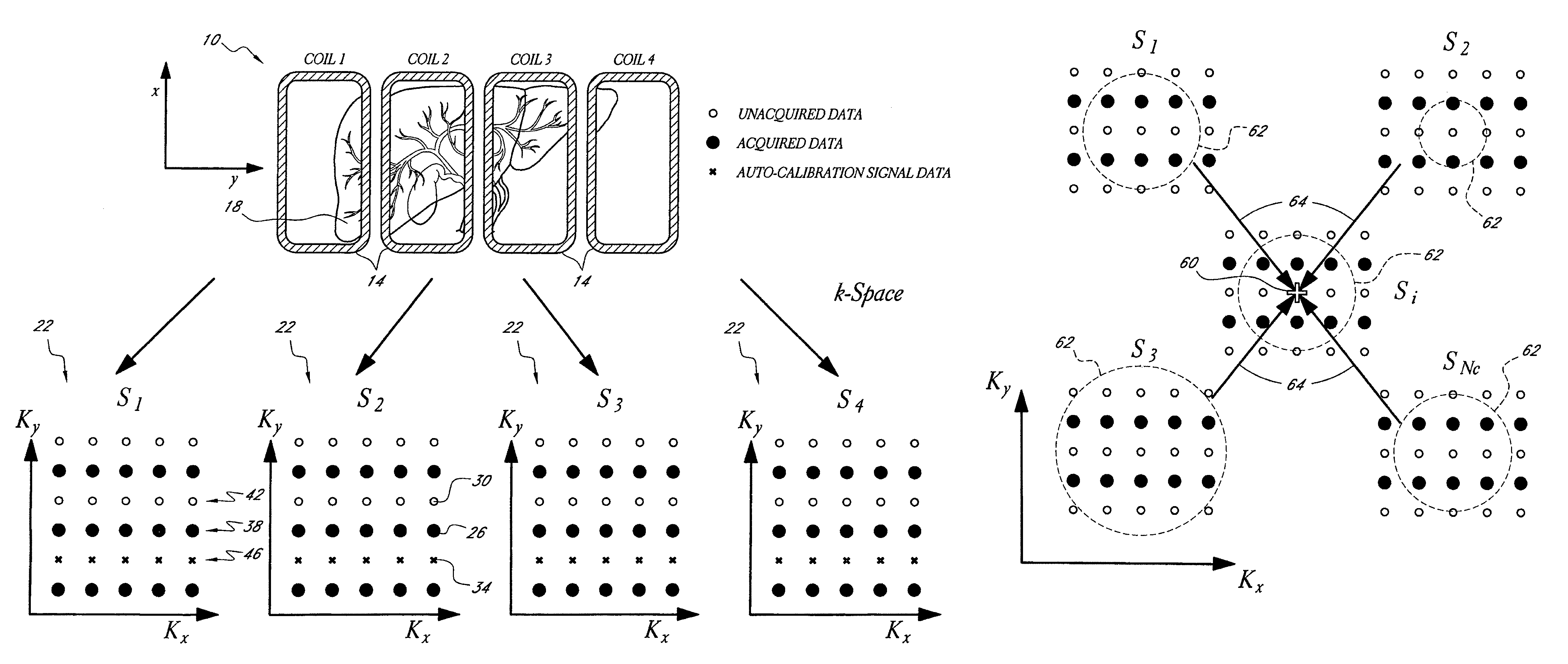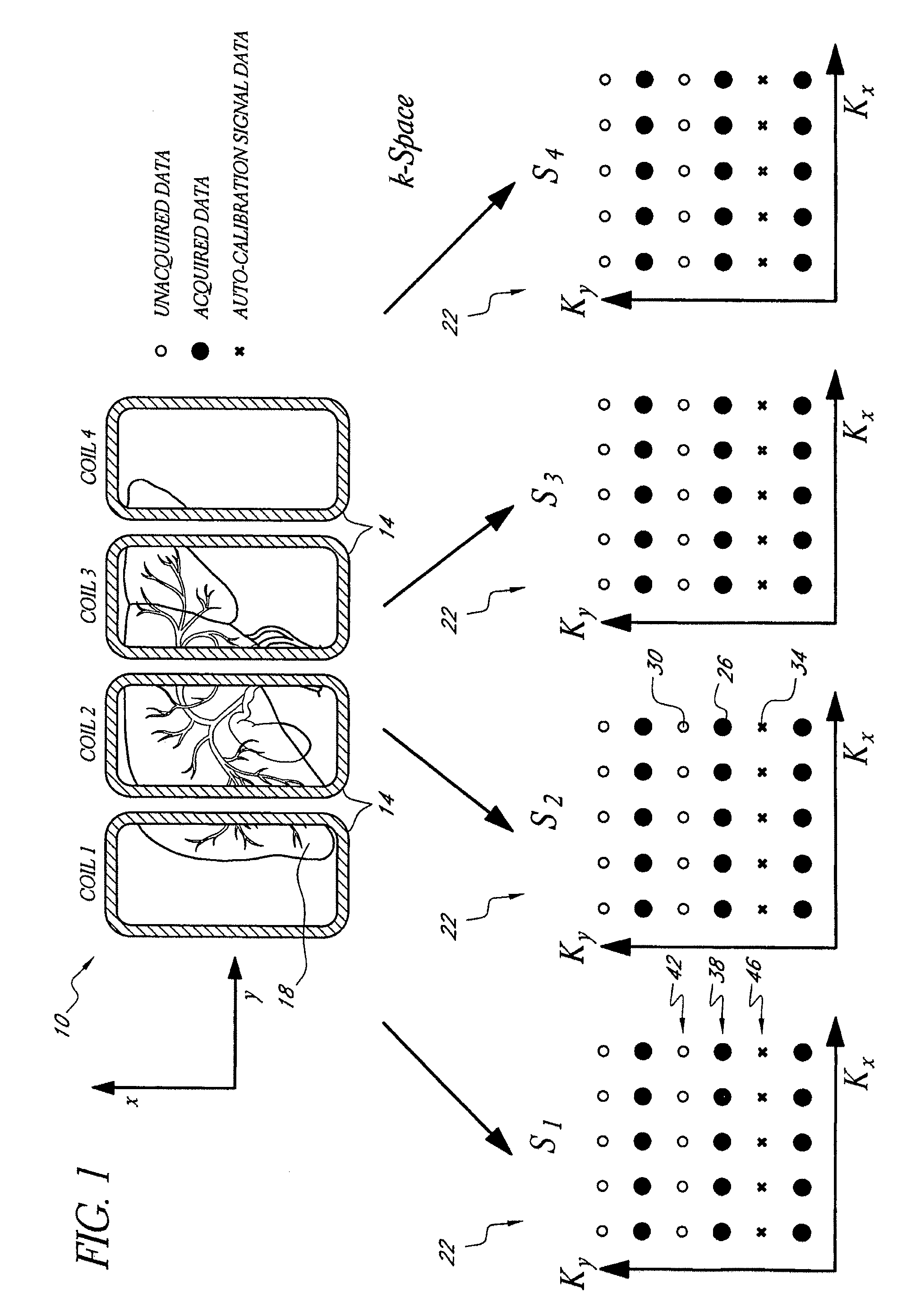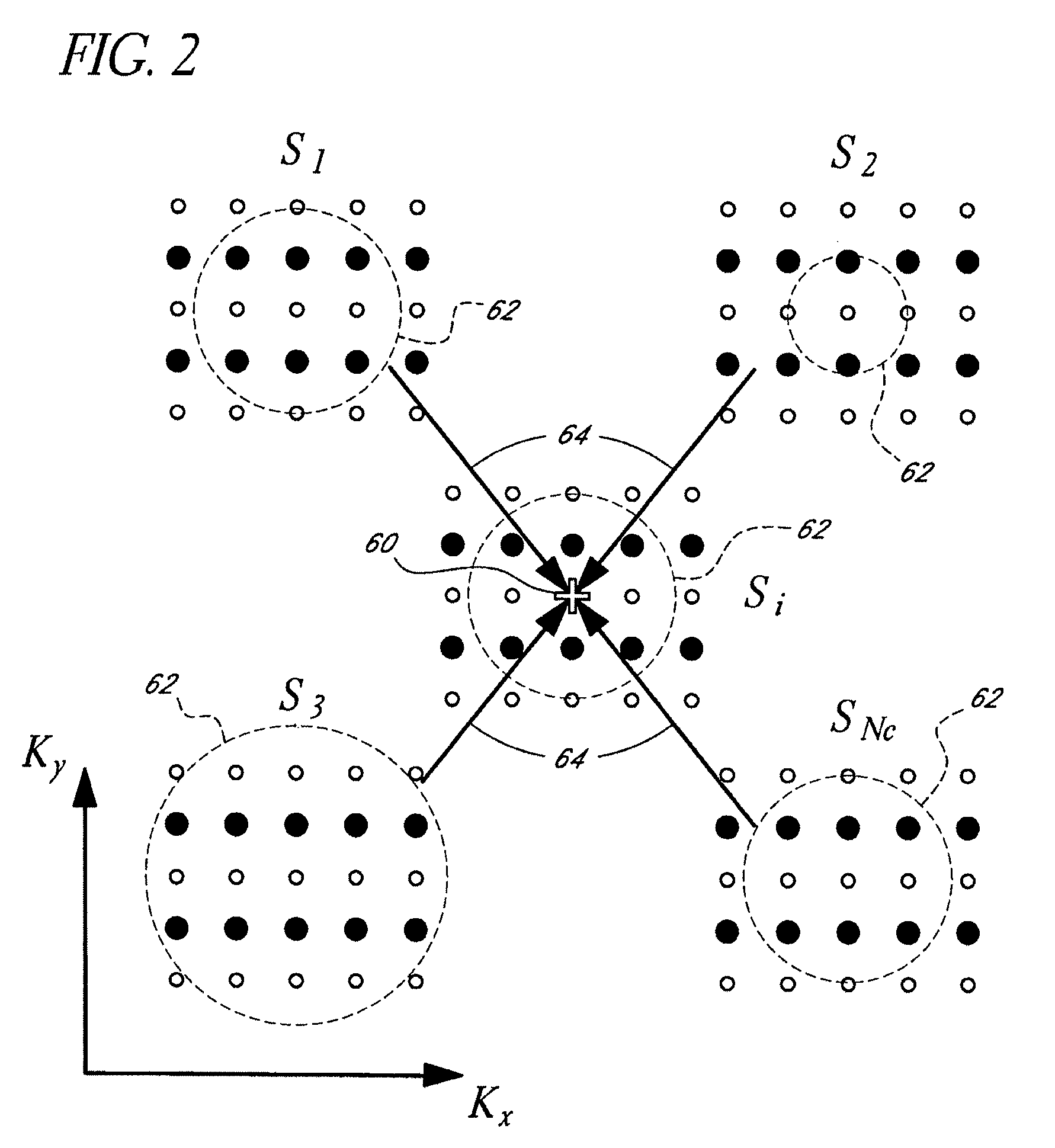Systems and methods for image reconstruction of sensitivity encoded MRI data
a technology of sensitivity encoded data and image reconstruction, applied in the field of magnetic resonance imaging (mri) methods, can solve the problems of not being able to image reconstruction, not being able to acquire certain data in k-space, and consuming time for sampling at the nyquist ra
- Summary
- Abstract
- Description
- Claims
- Application Information
AI Technical Summary
Benefits of technology
Problems solved by technology
Method used
Image
Examples
Embodiment Construction
[0023]For convenience and ease of presentation only, the following detailed description is generally directed to systems and methods for two-dimensional (“2-D”) [e.g., (x,y)] image reconstruction from 2-D Cartesian k-space [e.g., (kx,ky)] MRI data. However, this is not a limitation on the systems and methods disclosed herein, and certain embodiments of the invention are directed toward 3-D [e.g., (x,y,z)] image reconstruction from 3-D Cartesian k-space [e.g., (kx,ky,kz)] MRI data. The systems and methods disclosed herein can also be applied to parallel or partially parallel MRI systems with undersampling in more than one phase encoding direction (e.g., ky,kz). Accordingly, it is understood that the systems and methods disclosed herein are general in nature and are not limited to the 2-D Cartesian embodiments shown and described for illustrative and / or example purposes.
[0024]FIG. 1 schematically illustrates acquisition of frequency domain MRI data in a parallel MRI system 10 having m...
PUM
 Login to View More
Login to View More Abstract
Description
Claims
Application Information
 Login to View More
Login to View More - R&D
- Intellectual Property
- Life Sciences
- Materials
- Tech Scout
- Unparalleled Data Quality
- Higher Quality Content
- 60% Fewer Hallucinations
Browse by: Latest US Patents, China's latest patents, Technical Efficacy Thesaurus, Application Domain, Technology Topic, Popular Technical Reports.
© 2025 PatSnap. All rights reserved.Legal|Privacy policy|Modern Slavery Act Transparency Statement|Sitemap|About US| Contact US: help@patsnap.com



